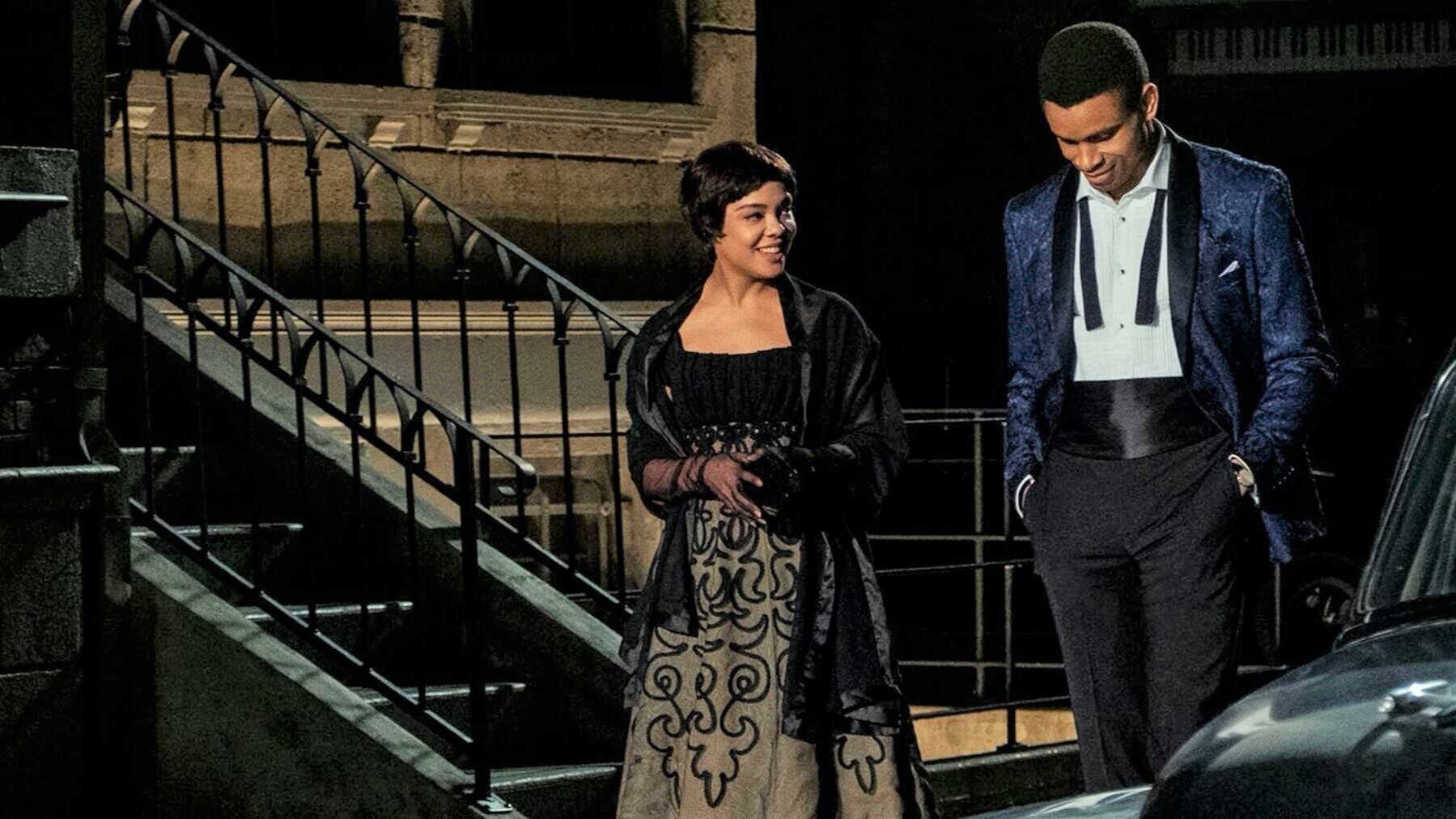Sylvie's Love
A film made with love that delights for part of the time, but not all the time.
Tessa Thompson and Nnamdi Asomugha
In the annals of 20th century British theatre, Sandy Wilson's The Boy Friend, a long-running smash hit in the 1950s, has a special place: Wilson's aim was to recreate the style of 1920s musicals not as parody but as a pastiche that expressed his love for them. Directly comparable in character is this film written and directed by Eugene Ashe as a tribute to the cinema of the 1950s and 1960s, an age when entertainment had an innocence rarely to be found today. Sylvie's Love is not exactly a recreation because it boasts a largely black cast in material which would then have been played mainly by white actors but it is still a homage to that earlier era and, as such, a labour of love as heartfelt as Wilson’s.
The first part of Sylvie's Love is a delight for the way in which it embraces old-style romantic musicals. The two leads, Tessa Thompson playing Sylvie and Nnamdi Asomugha playing Robert, may not be required to sing and their dancing too is limited but Robert is a tenor saxophonist in Harlem and jazz music and song recordings heard on the soundtrack are so much part of the film that it feels like a musical. This part of the story even has a touch of Jacques Demy's The Umbrellas of Cherbourg about it being a portrayal of young love fated to go awry. In this case Sylvie is already engaged to a rich fiancé, Lacy (Alano Miller), but, despite finding true love with Robert, she decides not to hold him back in developing his musical career abroad by revealing that she is pregnant by him. The narrative resumes five years later in 1962 showing that Sylvie is now married to Lacy who had accepted the child, but then she meets Robert again…
At 114 minutes Sylvie's Love is a long film, too long in fact. It falls into three sections and in the second of these which concentrates on the romantic triangle the music plays less of a role and the film comes closer to echoing the melodramas of Douglas Sirk. Admirers of his work may relish the second half of Sylvie's Love more than I did, but in any case what had initially been charming in an old-fashioned way leads on to desperate plot contrivances. Indeed, the movie could easily have concluded at the end of the second section but instead Ashe seeks to find excuses, however illogical, to keep Sylvie and Robert apart for another half-hour or so. In a parody you might capitalise on this and get away with it, but not in a pastiche because we want to believe in the couple and their love however much reality is left behind. Indeed, Thompson and Asomugha are so appealing that at its romantic best I find Sylvie's Love far more effective as a black love story than the Barry Jenkins take on James Baldwin's If Beale Street Could Talk (2018). However, the taste of individual viewers may prompt a variety of reactions to this film as a whole. For myself I can only say that the longer the film went on the more it lost me, but I loved the first fifty minutes or so.
MANSEL STIMPSON
Cast: Tessa Thompson, Nnamdi Asomugha, Aja Naomi King, Eva Longoria, Jemima Kirke, Lance Reddick, Alano Miller, Tone Bell, Raquel Horsford, Erica Gimbel, Wendi McLendon-Covey, Regé-Jean Page.
Dir Eugene Ashe, Pro Eugene Ashe, Nnamdi Asomugha, Gabrielle Glore, Jonathan Baker and Matthew Thurm, Screenplay Eugene Ashe, Ph Declan Quinn, Pro Des Mayne Berke, Ed Dana Congdon, Music Fabrice Lecomte, Costumes Phoenix Mellow.
Iam21 Entertainment/Seven Letter Word Films-Amazon Studios.
114 mins. USA. 2020. Rel: 23 December 2020. Available on Amazon Prime. Cert. 12.


